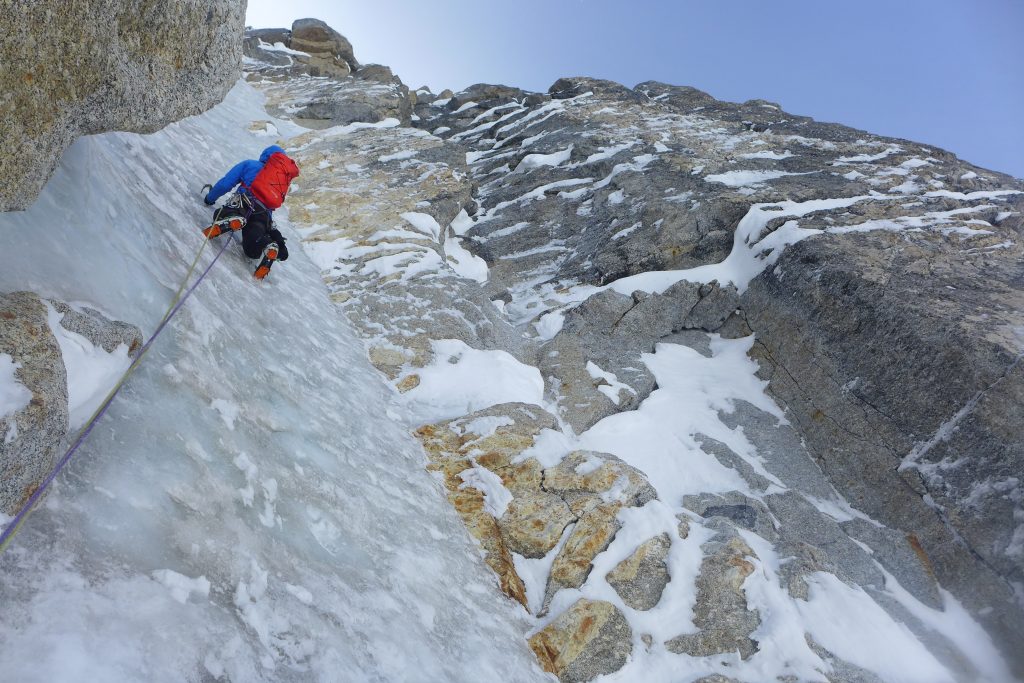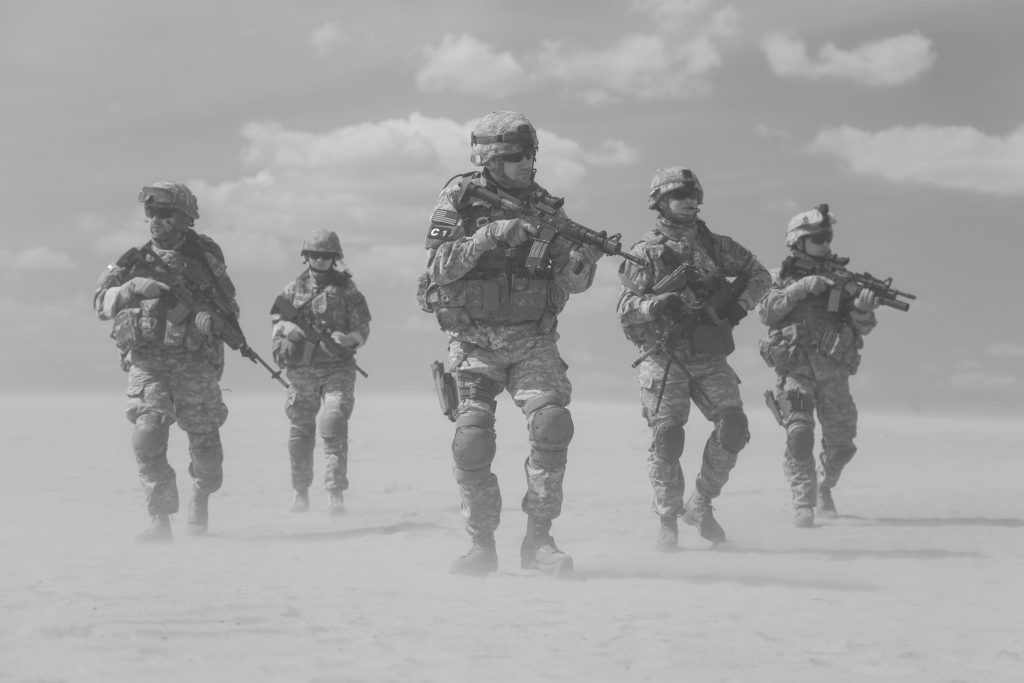
By Josh Jespersen
I’m a former Navy SEAL, and now a snowboard mountaineer.
As a SEAL I was fortunate to reach the elite level of tactical athletes. In 2016, I set a record for climbing and snowboarding all 54 of the Colorado 14ers, and entered the elite world of mountain athletes.
I’ve directly experienced the challenges, heartbreak and brutal beauty of both the battlefield and the alpine. There are many similarities and a few differences between both worlds and the athletes who live in them.
Bold
When you willfully go down a path less traveled, where the outcome is uncertain, and you might not make it, you are saying, “I’m the one.” “I’m the guy that can overcome any barrier put in front of me, and I want that challenge.”
This is absolutely a characteristic shared by service members and mountaineers.
Entering a program where the attrition rate is over 75% to get a pin on your chest, or a patch on your shoulder is most certainly akin to Amundson and Scott having the audacity to race to the South Pole.
It’s not saying that you are the best, but it is saying that you are willing to risk defeat, embarrassment, hardship, turmoil, and possibly even death to become the best.
The gateway into these worlds ensures only the bold may partake.
Crush, with the volume cranked
Now, to be one of those bold ones, there are traits inherent.
The saying “work hard, play hard” might describe both these types of athletes to a tee, but it doesn’t go deep enough on one trait.
The insatiable appetite to strain, to sweat, and to go so hard that you want to collapse. To crush yourself. This is a will I can’t shake, and what originally drew me to the programming of Rob Shaul all the way back in 2007. I was in Baghdad, and when my pack of knuckle draggers wasn’t knocking on doors, we were throwing iron and constantly craving protein. I got one look at what was then “Mountain Athlete,” and saw exercises called “Curtis P’s,” “Man Makers,” “Mutant Makers,” and workouts that purposely lasted more than 60 minutes, I was hooked. We would be asked to leave gyms on base because we would blast a Zep set, and refused to wear our shirts whilst crushing.
These athletes will find any program that will push them physically and make their shoes foam with sweat, because we get off on that shit, with the volume cranked.
 Embrace the Suck
Embrace the Suck
To cross a threshold, and attain a high level of accomplishment, you must be willing to laugh off any level of complete suck that might come your way. This goes beyond second-hand fun, and mandates an ability to weather the worst of storms, sand or snow. It ranges from getting mortared over twenty times on election day in Afghanistan, and taking bets on what time the next one will come in, to being tent-bound in a 48-hour storm on Denali with 80 MPH winds, and cackling like a Hyena when the gusts sound and feel like those mortars from years before.
“Embracing the Suck” is a learned skill, built over time by first purposely putting yourself in these situations and learning to be comfortable being uncomfortable.
Yet “Embracing the Suck” this is a step beyond stoic. It’s relishing the experience and making the best of it.
Love thy Brother
That guy or girl sitting next to you who you’ve been throwing rocks into a helmet with for hours to kill the boredom, or who you share your last block of cheese with while there’s still miles to go … these are the individuals you bond with.
However, building this bond takes time. You don’t sign on the dotted line for those people to start. You sign up at first because you’re one of the bold ones. And when you take that turn down the uncommon path, you find out there are others that might be like you. You struggle together through the selective training and weeding out. Never openly at odds, but when someone fails and rings out or chooses a different path, you don’t remorse.
The crucible eventually ends, and those remaining become the “brotherhood.” You still don’t know them, but you are like them, and you progress together. When you work hard, they are there pushing you and driving you on. When you play hard, they are there too, reeling you in or egging you on, and finally, after you have shared enough bunkers and tents to last a lifetime, they are your brother. They are your sister, and that bond lives forever.
Completing the Mission vs Living to Climb Another Day
This is where the worlds of tactical and mountain athletes diverge, and for good reason.
Both have a mental game that is unparalleled. Both tactical and mountain athletes have proven they can weather the storm, sit through the blasts, and push themselves to the limits. Subjectively, you have done all these things. It was your choice, in your head, to continue through whatever hazards you might have determined you could handle.
Then, the mountain objective risks start to surface. The cornices start to build, or the snowpack goes upside down. Route Irish becomes the only option, or an operation runs well into daylight.
These hazards are objective. It’s not your iron will that made them a real threat. It’s the alpine or combat environment.
Tactical athletes on the battlefield often don’t have the choice of returning to try again when things are safer. They must complete the mission and hope their tires straddle the pressure plate, and when the ambush comes, they’ll be the better shot.
But in the mountains, athlete’s have a choice. You don’t have to step foot on the slope waiting to rip away or expose yourself to a serac after it gets too warm.
You can quit and live to climb another day.
Die a Hero vs Die In Vain
Here is where being a mountaineer, and being in the military go opposite ways.
Die in combat, as so many brave men and women have done, and you are a hero. You died for your country; you died for your brotherhood. Yours will be considered a “good” death; an honorable sacrifice and your brothers will be proud that you may enter Valhalla.
Die in the mountains, and chances are, you blew it. That’s what people will think and say anyway.
They’ll say she shouldn’t have been out there alone, or he knew the avalanche danger was extreme. Your death will not be considered a good one, and the Valkyries will not be escorting you out of the debris.
It is a curious dichotomy, for athletes so similar to die and be considered either brave or unwise.
Don’t blow it.
About the Author
Former Navy SEAL Josh Jespersen if an MTI Crux Award winner and this Winter set the record for climbing and skiing or snowboarding all 54 Colorado 14ers.
